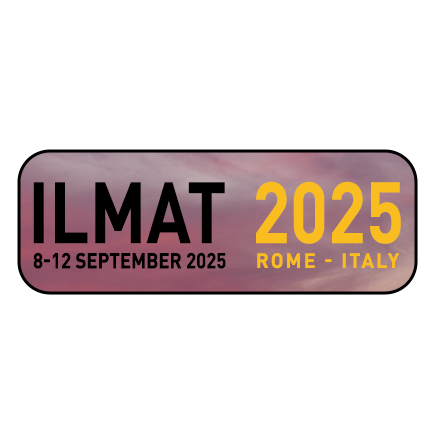Conference Series
| YEAR | LOCATION |
| 2025 | Rome, Italy |
| 2023 | Porto, Portugal |
| 2021 | Alsace, France |
| 2019 | Paris, France |
| 2017 | Santiago de Compostella, Spain |
| 2015 | Berlin, Germany |
| 2013 | Montpellier, France |
| 2011 | Vienna, Austria |
ILMAT 2023
We are delighted to welcome you to the ILMAT2023 | 7th International Conference on Ionic Liquid-Based Materials held in Porto, Portugal, from November 21st to November 24th, 2023.
PORTO is the second largest city in Portugal and one of the major urban areas in Southern Europe. It is situated along the Douro River estuary in northern Portugal and is one of the oldest European centers, with a settlement dating back many centuries as an outpost of the Roman Empire. Its Latin name, Portus Cale, is believed to be the origin of the name Portugal. Porto is frequently recognized as Europe’s Leading City Destination.
This prestigious event is organized by the Faculty of Science of the University of Porto in partnership with the Portuguese Society of Chemistry (SPQ).
The technical sessions for ILMAT2023 will take place at the Instituto Pernambuco–Porto, providing an ideal venue for fruitful discussions and knowledge exchange among researchers and industry professionals in the field.
ILMAT 2021
After Vienna (2011), Montpellier (2013), Berlin (2015), Santiago de Compostela (2017) and Paris (2019)…
… the ILMAT research community returns to France for a sixth edition in Alsace!
The conference will be held in Alsace, from Monday, November 22 – 26, 2021
After Vienna (2011), Montpellier (2013), Berlin (2015), Santiago de Compostella (2017) and Paris (2019), Alsace will host the European Congress ILMAT-VI (6th International Conference on Ionic Liquid-based Materials) in Saint Nabor (Domaine Saint Jacques, thirty minutes from Strasbourg) between November 22nd and November 26th, 2021.
This European conference is devoted to saline materials including ionic liquids and their chemical, physicochemical, physical and biological properties.
If the ammonium, imidazolium, phosphonium, pyridinium, pyrrolidinium and sulfonium are the most common and most studied cations, it is because their associations with different anions can lead to synthetize close to an infinity of new molecules.
These anion-cation combinations govern their physical and chemical properties: melting point, color, viscosity and amphipathic character (balance between the parts hydrophilic and hydrophobic of the molecular structure) and give rise to the mesomorphic state or liquid crystal and opening up prospects for biological activities for these salts.
Among the most interesting properties of these molecular salts are their low melting point and volatility, flammability, high chemical and radiochemical stability, adjustable conductivity and wide electrochemical window. In solution or in the liquid state, they constitute excellent solvents and electrolytes.
For the chemical industry, these molecular salts are booming for hygienic and safety reasons. Also they are found to have more and more applications in areas such as dyes, lubricants, photovoltaic cells, fuel cells, electrolytes for Li-batteries, extraction, depollution and recycling … In biology and medicine, the use of molecular salts and especially liquids ionics have boomed over the past ten years with the development of active pharmaceuticals, pro-drugs, new original vectors for administration drugs and the transfection of genetic materials, solvents for the synthesis of drugs thus stabilization of enzymes in ionic medium.
ILMAT-VI aims to bring our young community together and bridge the gap between fundamental research, theoretical and experimental on these molten salts at room temperature and their industrial applications, bringing together researchers from universities and industry around the world and encouraging discussions and collaborations in a scientific atmosphere and social dynamic to bring out new applications in the field of sustainable development.


